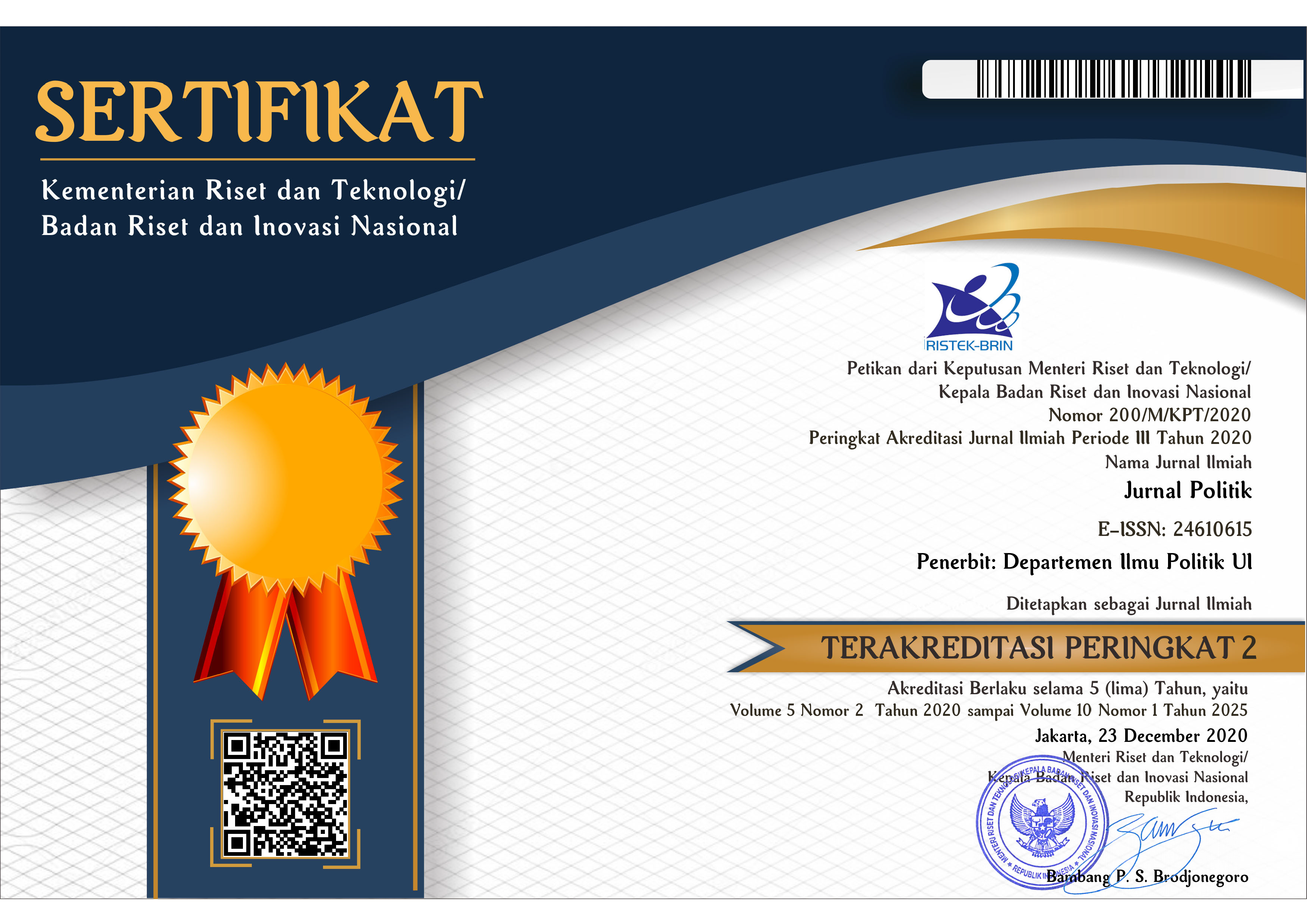Abstract
The mechanism of direct election in presidential election encourages political party to choose the most popular candidate even though he/she is a party outsider. It has a risk that the party or the general chairperson as “principal” will have difficulty controlling the nominated “agent” or outsider. Presidentialism at least changes the behavior of political parties in terms of nominating, electing, and governing. Through qualitative methods and data collection using interviews, this research raises the case study of the Indonesian Democratic Party of Struggle (PDI-P) behavior in the nomination of Joko Widodo as the Presidential Candidate of the Republic of Indonesia in the 2014 Election. By combining Samuels-Shugart’s model of presidentialized party (2010) and Kawamura (2013) as the main theory, coupled with the perspective of Poguntke-Webb (2005), this research produced several findings. First, PDI-P, although it was still dominated by Megawati Soekarnoputri role in the party’s decision, but exploited the popularity of outsider figure, Joko Widodo, to win the 2014 Election. Second, in the case of PDI-P, the principal-agent relation is unique because its principal is Megawati only, remembering her central role in the party. As for the agents, there are two parties, first, the party administrators who obedient to Megawati, and since the 2014 election, came the se¬cond agent namely Joko Widodo who got the mandate to manage the executive. Third, there are several internal conflict dynamics dominated by conflict between different interests of agents. Fourth, Megawati as principal was having difficulty in controlling her agent, Jokowi, so Megawati was often reminded him with the term “party officer”. This article argues that PDI-P was presidentialized although it still had a personalized party character.
Recommended Citation
Alhamid, Ahmad and Permana, Aditya
(2018)
"Presidentialized Party di Indonesia: Kasus Perilaku PDI-P dalam Pencalonan Joko Widodo pada Pilpres 2014,"
Jurnal Politik: Vol. 3:
Iss.
2, Article 3.
DOI: 10.7454/jp.v3i2.1088
Available at:
https://scholarhub.ui.ac.id/politik/vol3/iss2/3


